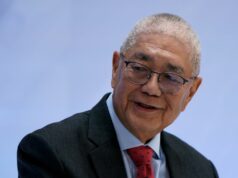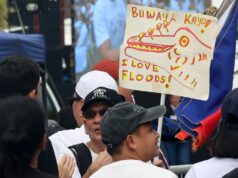INTERNET advocacy group Better Broadband Alliance (BBA) said the draft rules limiting the proposed cell-tower industry to two companies should include performance commitments.
In a letter to Department of Information and Communications Technology (DICT) Acting Secretary Eliseo M. Rio, Jr. distributed to reporters on Monday, the BBA said the two-company limit in the first four years should come with guarantees on the extent of tower coverage.
It said these guarantees should include minimum tower deployment based on the network rollout plans of mobile network operators, small telcos and broadband service providers.
“While the BBA is aware that several (tower companies) operate in other countries (such as India, Indonesia, and Myanmar), and while we initially preferred an open market approach, we also recognize the local context-the high learning curve, risks, and difficulties that both the government and investors will have to contend with, as the Philippines shifts to common towers for the first time,” it said.
The DICT’s draft policy on telco infrastructure sharing, which restricted tower companies to two, was met with criticism from prospective tower companies and network providers when presented at a public hearing last month.
Representatives from Globe Telecoms, Inc. and Telenor Group, American Tower Corp. and Frontier Tower Associates aired concerns that setting the two-company restriction may not be effective in speeding up the deployment of towers.
But the BBA said given the transition from past practice of allowing telcos to set up their own towers to registering independent tower companies, it might be best for the government to “be given the leeway to offer incentives to potential investors and to set standards and rollout obligations in exchange for exclusivity, in order to achieve the objectives of expanding coverage at the soonest possible time.”
It noted, however, that the government must allow an unlimited number of tower companies to come in after the four-year trial period.
The BBA also raised the importance of selecting tower companies that will ensure improved services in unserved and underserved areas. It recommended that the government should start allowing other tower companies to come in if the registered ones “show little indication of rolling out in underserved and unserved areas.”
Another point raised by the BBA is the need to include small telcos and broadband service providers in the companies that will submit roll-out plans from which tower companies will base their commitments.
“While it is assumed that the primary clients of the towercos and pole owners will be (Globe and Smart Communications, Inc.), shared infrastructure should also, and more importantly, serve the small players and broadband service providers whose deployments have been limited to date due to the absence of support infrastructure, such as towers and poles, which, on their own, the small players cannot build and operate,” it said.
The BBA added, the policy must add more details on pole sharing policy and disaster resiliency of the infrastructure to be built. It also said the government must consider sustainability of the common towers and poles, and called for provisions that will address expediting the permit process and passing the Open Access Bill at the Senate.
Mr. Rio previously said the DICT plans to finalize the infrastructure sharing policy by November, in time for the entry of the third telecommunications industry player. — Denise A. Valdez



